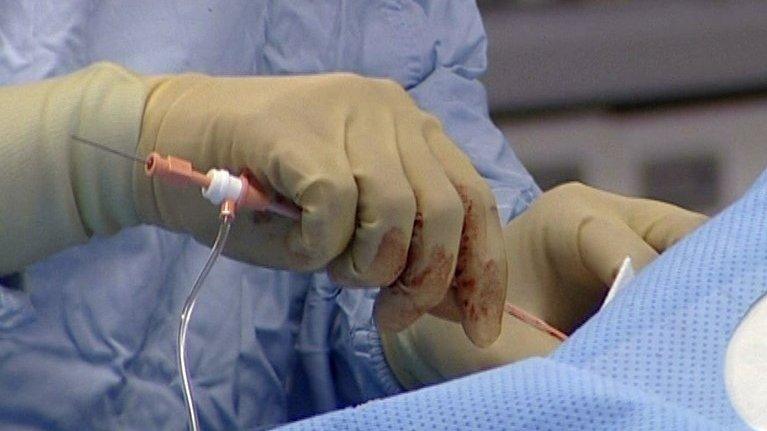A&E 'on the edge and waits too long', says leading doctor
- Published
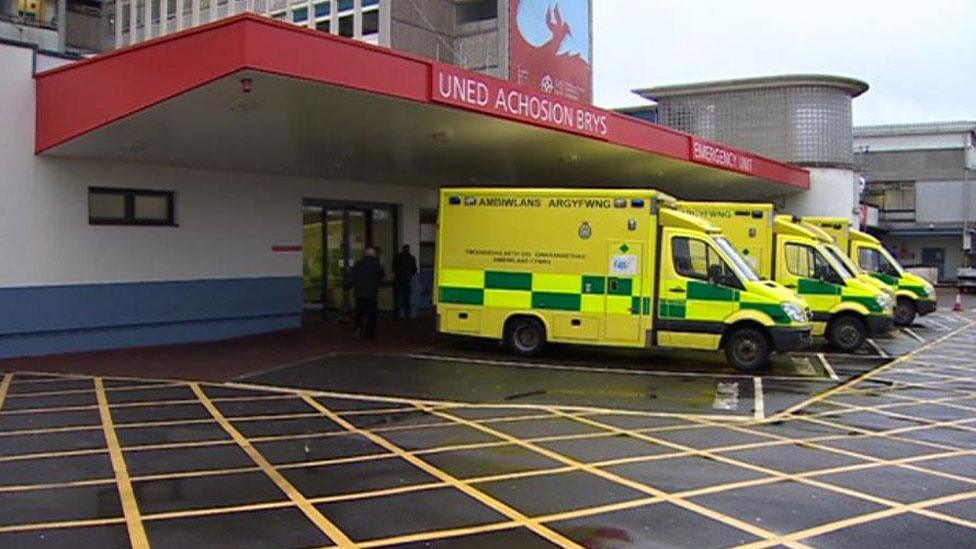
Consultants are worried about so-called 'exit blocks' from A&E
Hospital emergency departments in Wales are "on the edge" with staff shortages and waiting times too long, a leading A&E doctor has warned.
Dr Robin Roop, head of the Royal College of Emergency Medicine in Wales (RCEM), said some patients were waiting more than 24 hours in A&E.
He warned no A&E department in Wales had enough consultants to meet minimum RCEM staffing levels.
The Welsh government said the pressures were not unique to Wales.
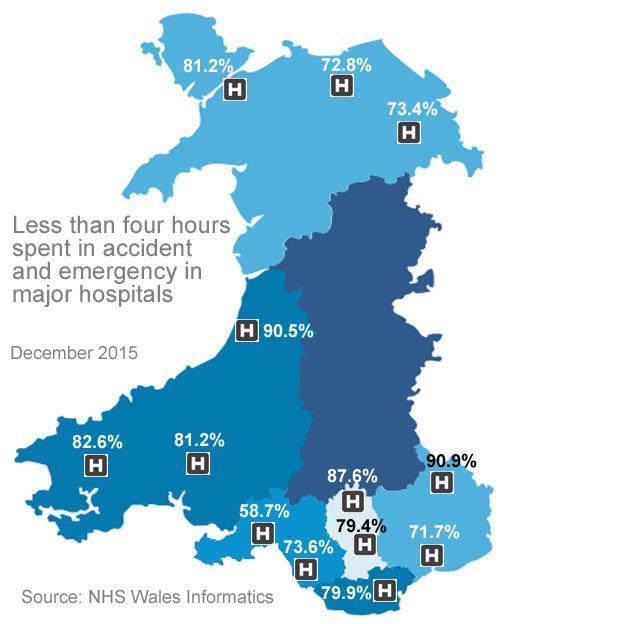
He was speaking as the latest statistics showed around 81% of patients spent less than four hours in A&E - the same as last year. , external
Although at Morriston Hospital in Swansea, 58.7% spent less than four hours in A&E in December 2015, compared to 69.3% in the same month in the 2014.
Dr Roop said there was also a shortage of senior doctors and emergency unit nurses.
Dr Robin Roop said high staff turnover is a real problem for A&E units
The gaps, which he claims are "notoriously difficult to fill", added to the pressures, mean frontline staff are "working excessively hard", "morale is going down" and more people are quitting emergency medicine.
"In Wales staff turnover in emergency medicine is getting worse. We have not been able to recruit new consultants at the same level here as in other countries," he said.
Dr Roop, who is a consultant in Wrexham, said A&E waits because wards were full were also a "continuous" problem, despite efforts by health boards to open additional hospital beds and postpone non-urgent surgery at times of high demand.
Morriston Hospital emergency consultant Andy MacNab explains how a shortage of carers in the community can have an impact
"The health boards have learnt from previous years about winter pressures and what needs to be done - things like expanding bed capacity and changing elective operations - they've worked to a small degree," he said.
"But we still see a reduction in the number of patients being able to be passed on (from emergency units) in a timely fashion. And we still see 'exit-blocks'.
"It means staff aren't doing what they've been trained to do in emergency medicine. They are now doing the additional things of looking after for longer because of the delays.
"There are patients waiting over four hours a lot of the time. So those patients have to be treated as a ward-based type of patient. The statistics show some patients spend over 12 hours in the department and some over 24 hours."

FACTFILE - A&E UNITS IN WALES:
More people attend units in summer than winter but in winter patients tend to be more ill
The busiest period is between 09:00 GMT and 13:00 on a Monday, when units see more than 250 patients an hour
The quietest period is between midnight and 06:00
Patients over 85 have the highest rate of attendances, especially during winter
Children and young people are least likely to attend in winter, but most likely to attend in summer
In winter, the average time spent in A&E is more than three hours

Dr Roop also warned A&E pressures could get worse in coming weeks, partly due to increasing flu cases, which have emerged later than last year.
"Absolutely every emergency department (in Wales) is on the edge - we are ever so close to patients becoming really poorly in our departments and that could have a knock-on effect and having disastrous outcomes," he added.
A Welsh government spokesman said: "There was a 23% reduction in the number of people who spent more than 12 hours in emergency departments in December compared to November but we know there is more work to do.
"We expect all health boards to ensure they have the right mix of staff to ensure services are safe, sustainable, and to ensure patient experience and outcomes are optimised."
Consultants at Morriston say fewer scheduled operations have been cancelled and elderly patients are leaving hospital earlier compared to last winter.
- Published19 January 2016
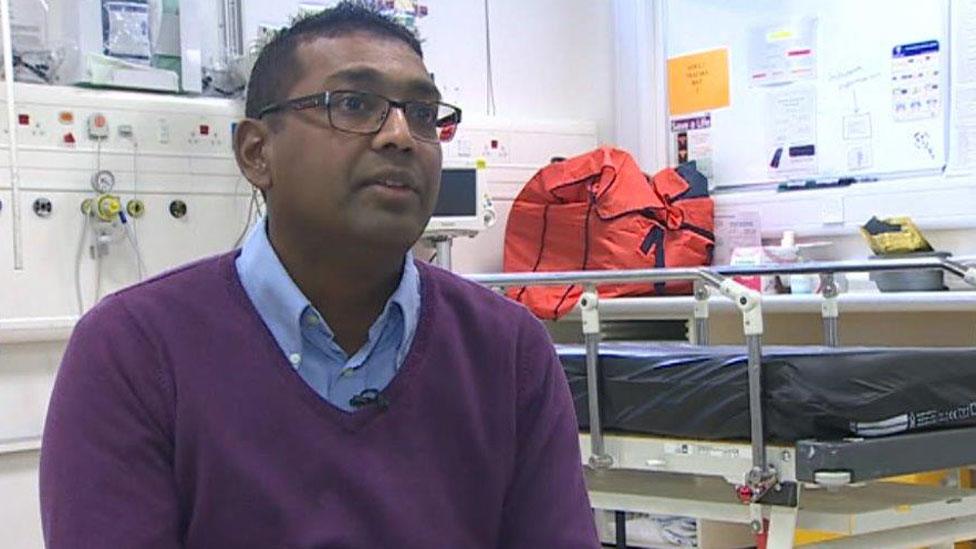
- Published18 January 2016
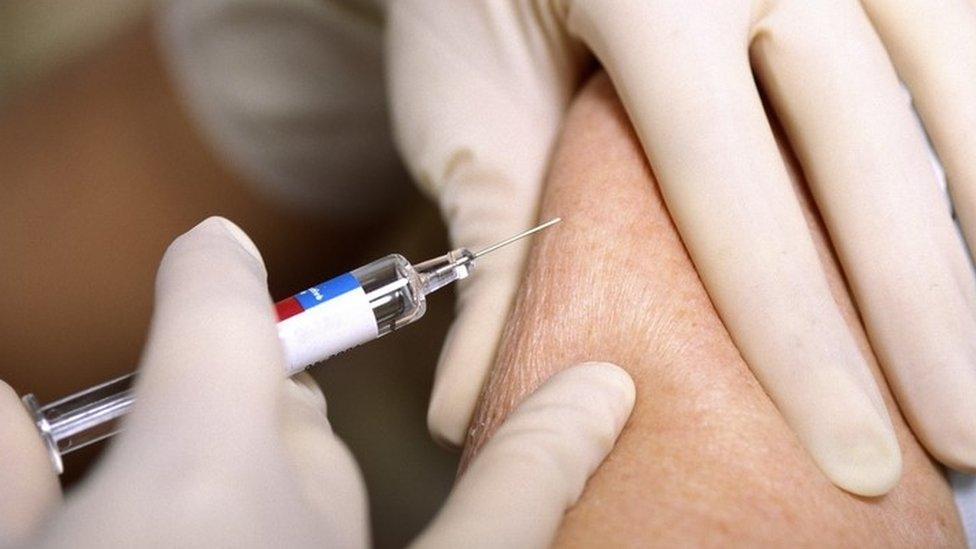
- Published18 March 2015
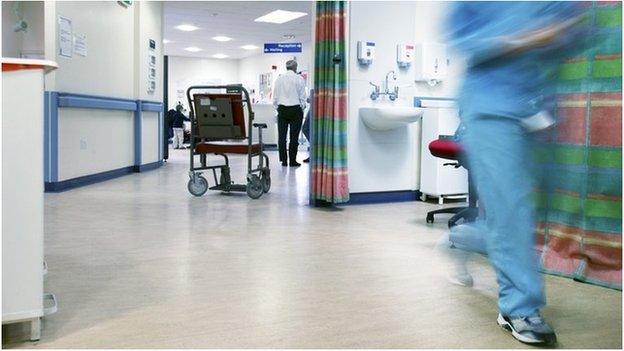
- Published26 January 2015
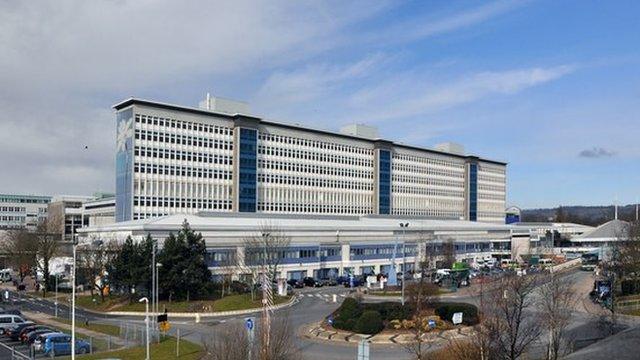
- Published16 November 2015
